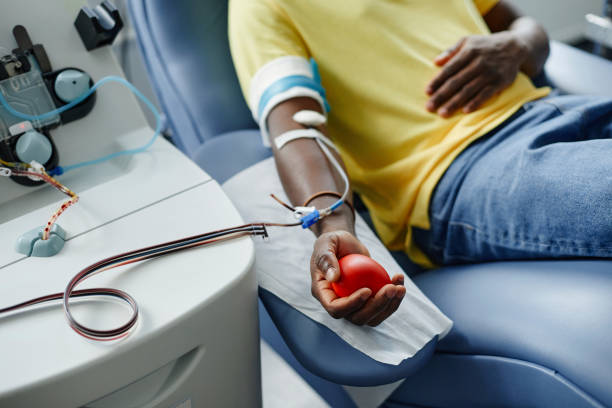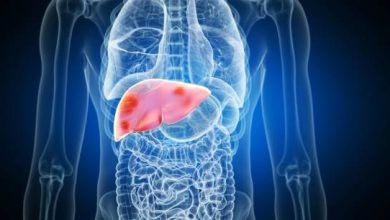9 Things Blacks Need to Know About Donating Blood


In this country, over 100,000 people have sickle cell disease – the great majority of whom are African American or of African descent. These patients may require frequent blood transfusions throughout their lifetime. Unfortunately, many people are hesitant to donate blood out of fear or due to a lack of information.
To combat this, we spoke with Dr. Yvette Miller, executive medical officer at the American Red Cross, to discuss the most pressing things people should know before they donate blood.
1. A large percentage of Blacks have type O blood
One in 3 African American blood donors are a match for people with sickle cell disease.
“Type O blood is the most common blood type in this country. The majority of people in this country have group O blood. African Americans are the second largest population of individuals with group O blood,” Dr. Miller says. “We encourage and we need Black people to donate just to ensure that we have enough group O blood on the shelves to meet the transfusion needs of the general population. We need group O blood, particularly when there’s an emergency and [first responders] don’t know the specific blood type of a recipient.”
Group O blood also comes in handy in medical emergencies, such as when a mother is hemorrhaging or when there’s a mass casualty such as a shooting.
“We need to have blood on the shelves for any and every emergency,” Dr. Miller adds.
RELATED: BIPOC Blood Donors Are Critical For Those Living with Sickle Cell
2. You don’t need to know your blood type to donate
“You don’t need to know your blood type in order to donate blood,” Dr. Miller shares.
However, if you are curious about your blood type, you will receive a donor card the first time you donate blood with the American Red Cross. The e-card includes what blood group you are in – A, B, O or AB – and if your blood type is positive or negative.
The Red Cross also has a blood donor app, where donors can access their donor card and blood type as well as track their blood pressure, and hemoglobin levels, and even find out when their blood has been distributed for use at a hospital.
3. You can donate if you have the sickle cell trait
It’s estimated that 8-10% of African Americans have the sickle cell trait, according to the American Society of Hematology. However, many are unaware that they carry this trait because they were never tested.
Testing for the sickle cell trait is important because you can pass the trait down to your children. The Red Cross is currently providing sickle cell trait screening on all blood donations from self-identified African American donors. Results are available within one to two weeks of your donation through the Red Cross Blood Donor App and the online donor portal at RedCrossBlood.org.
The good news, however, is that even if you have the sickle cell trait, you are still eligible to donate blood.
4. There are a few restrictions on who can donate
“We are really focused on ensuring that our donors are healthy, but there are very few restrictions,” Dr. Miller says.
Individuals who are 17 years of age in most states (16 with parental consent where allowed by state law), weigh at least 110 pounds and are in generally good health may be eligible to donate blood.
Before you are able to donate, the phlebotomist will check your cardiovascular health (i.e., blood pressure, pulse, hemoglobin, iron, etc.) to make sure it is safe for you to donate.
In many cases, something as simple as drinking too much caffeine before your appointment can elevate your blood pressure. In this case, you will be given a one-day deferral and asked to return the next day, Dr. Miller notes.
RELATED: Surprising Health Benefits Of Donating Blood
5. You can donate if you are on medication
“Donors who are taking blood pressure medications are acceptable as blood donors. There are very few medications that restrict a person from donating blood,” Dr. Miller adds.
If you have concerns about whether or not it is safe to donate under a medication you are taking, you can visit RedCrossBlood.org or call 1-800-RED CROSS and a medical officer can help you determine if it is safe for you to donate.
6. Most Blacks naturally have a lower hemoglobin level
“For most African Americans – our normal hemoglobin is on the low end of the scale,” according to Dr. Miller.
Because the FDA has specific eligibility requirements in terms of hemoglobin, (women must have a minimum hemoglobin level of 12.5g/dL and men must have a minimum level of 13g/dL), this may affect whether or not you are eligible to donate blood even if you are within a low normal hemoglobin range.
If you’ve had hemoglobin problems in the past, you should have a conversation with your healthcare provider.
7. There are things you can do to prepare yourself
“We know when a person donates a unit of blood, you lose iron and so to build that iron back up, we definitely recommend that our regular donors consult with their healthcare provider about taking a multivitamin,” Dr. Miller suggests.
She also encourages people to eat a healthy diet that is rich in iron, drink plenty of water and get lots of rest prior to their appointment.
“Drink plenty of water because that helps replenish some of the fluid that you will lose when you donate a unit of blood,” she shares.
8. You can save time with RapidPass
For those looking to save time at the blood drive, visit RedCrossBlood.org/RapidPass the day of your appointment to answer the health history questions online before coming to the drive. Completing a RapidPass can reduce time spent at the drive by up to 15 minutes.
“Once you answer all the questions, you will receive a barcode to present at the blood drive along with your ID. A staff member will scan the barcode, ask you two or three confirmatory questions and then you are quickly on your way,” Dr. Miller shares.
RELATED: How Does Your Donated Blood Get to a Patient in Need? blood donor
9. You will have to be monitored after you donate
“In health history, one of our collection staff members will check your pulse, blood pressure, temperature, and your hemoglobin. If you are eligible to give, you will be seated comfortably and a phlebotomist will cleanse your arm, and insert a brand-new sterile needle to collect one pint of blood. It takes about 8 to 10 minutes to donate a pint of whole blood. Once complete, a bandage is placed on your arm and you are invited to the “canteen” or refreshment and recovery area, to sit down, rest up and get a delicious snack and drink because you’ve just donated a unit of blood,” Dr. Miller shares.
To ensure you are feeling well after donating, you will be asked to spend 10 to 15 minutes in the refreshment and recovery area before you leave.
You will also be asked to drink an extra four glasses (eight ounces each) of non-alcoholic liquids, keep your bandage on for the next five hours, and refrain from heavy exercising or lifting for the day.
If you’ve never donated blood before, Dr. Miller advises calling 1-800-RED CROSS or simply coming in to see if you are eligible because many people assume they aren’t eligible when they are.
For more information on donating blood or to schedule an appointment to give, visit Joined by Blood or call 1-800-RED CROSS.




